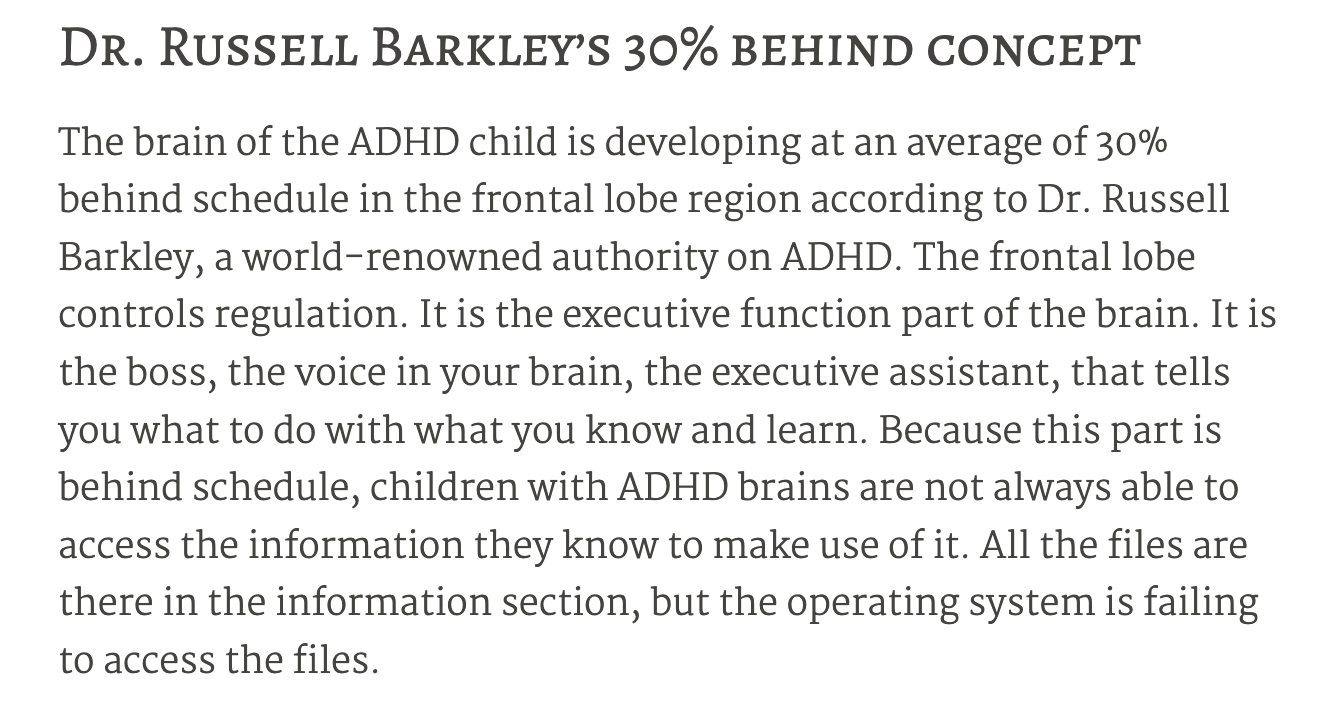8 problems that impact executive function and ADHD
Executive functions refer to a set of cognitive processes that allow individuals to plan, organise, initiate, manage time, sustain attention, switch focus, and inhibit impulses to achieve goals effectively.
These functions are crucial for everyday tasks, decision-making, and goal-directed behaviour. When executive functions are impaired, it can have significant consequences for adults (and children) with ADHD. Did you know that if a person has ADHD their executive functioning skills can be 30-40% delayed?
Here are eight problems associated with executive function deficits in adults with ADHD:
Inhibition: Individuals with ADHD often struggle with inhibiting impulsive behaviours or responses. This can lead to difficulties in controlling emotional outbursts, interrupting others in conversations, and making rash and impulsive decisions without considering the consequences.
In social and professional contexts, these challenges can result in strained relationships and sometimes impede career progress.
Working Memory: Working memory involves the ability to hold and manipulate information temporarily. Adults with ADHD may have difficulties with this aspect of executive function, making it challenging to follow multi-step instructions, remember important details, or stay focused on tasks that require mental effort.
Attention: Sustaining attention on tasks that are not inherently stimulating can be problematic for individuals with ADHD. They may become easily distracted by irrelevant stimuli or have difficulty maintaining focus on tasks that require sustained effort. If a task doesn’t release dopaimine it can mean that the person just can’t get started with the task.
This can lead to procrastination and incomplete tasks, causing frustration and inefficiency. Playing energising music, or putting a time limit on dull tasks can help.
Planning and Organisation: Planning and organising tasks can be really challenging for adults with ADHD, no matter how hard they try. They may struggle to break tasks down into manageable steps, prioritise activities, and create effective strategies for completing projects. As a result, they may miss deadlines, forget appointments, and have trouble meeting responsibilities. ADHD coaching and have an accountability partner can help with this.
Time Management: Adults with ADHD often have difficulties estimating time accurately and managing it effectively. They may underestimate the time needed for tasks, leading to chronic lateness and difficulty meeting deadlines. This is also known as time blindness. Some adults with ADHD (like myself) may never actually be late, but the planning it takes to ensure that I arrive on time is exhausting and draining.
Initiation and Motivation: Getting started on tasks can be a major hurdle for individuals with ADHD. They may experience a lack of motivation, especially for tasks they find uninteresting or challenging. This can lead to procrastination and a cycle of frustration as tasks pile up. Body doubling is a great way to overcome this. Get a friend or family member to sit with you when you have a task you don’t want to do. Just someone being with you, can be enough to keep you on track.
Emotional Regulation: ADHD can also affect emotional regulation. Adults with ADHD may experience mood swings, frustration, and irritability, which can impact their relationships and overall well-being. This can be exhausting and draining. Understanding when you are feeling dis-regulated can help manage your mood.
Difficulty with Transition and Change: People with ADHD often struggle with transitioning from one task or environment to another. This can lead to resistance to change and difficulty adjusting to new routines or unexpected events.
The problems with executive function in adults with ADHD can lead to challenges in various aspects of life, including education, employment, relationships, and overall quality of life.
ADHD coaching can help improve executive function, so do get in touch if you’d like to find out more. Any good ADHD coach will help with executive function challenges, giving you a toolkit of strategies to help manage it. Also reading about it and understanding more about how it impacts you, can help too.



